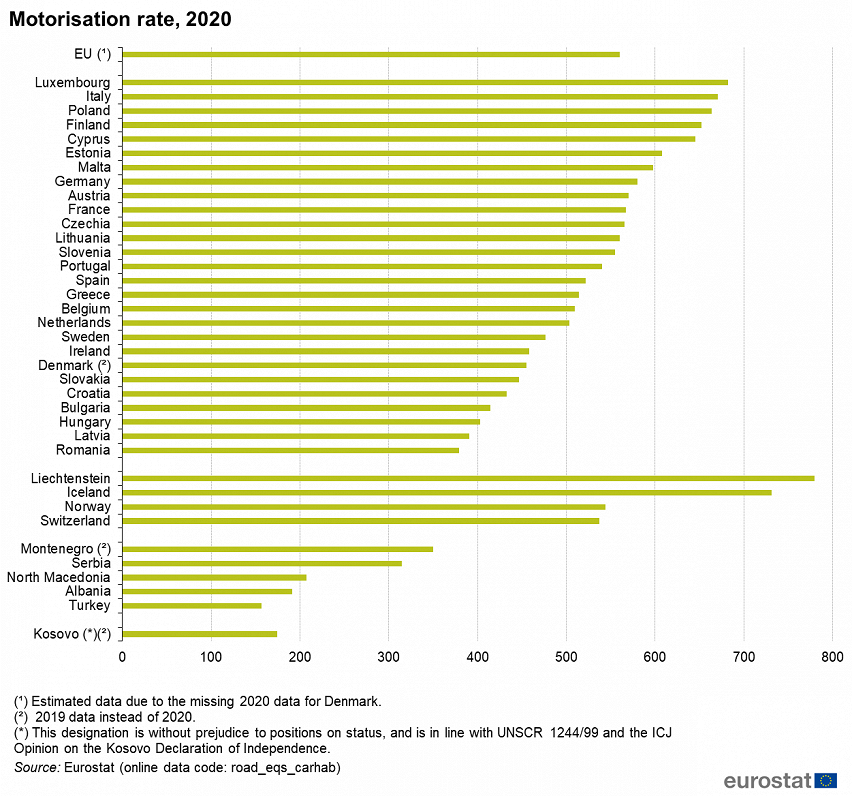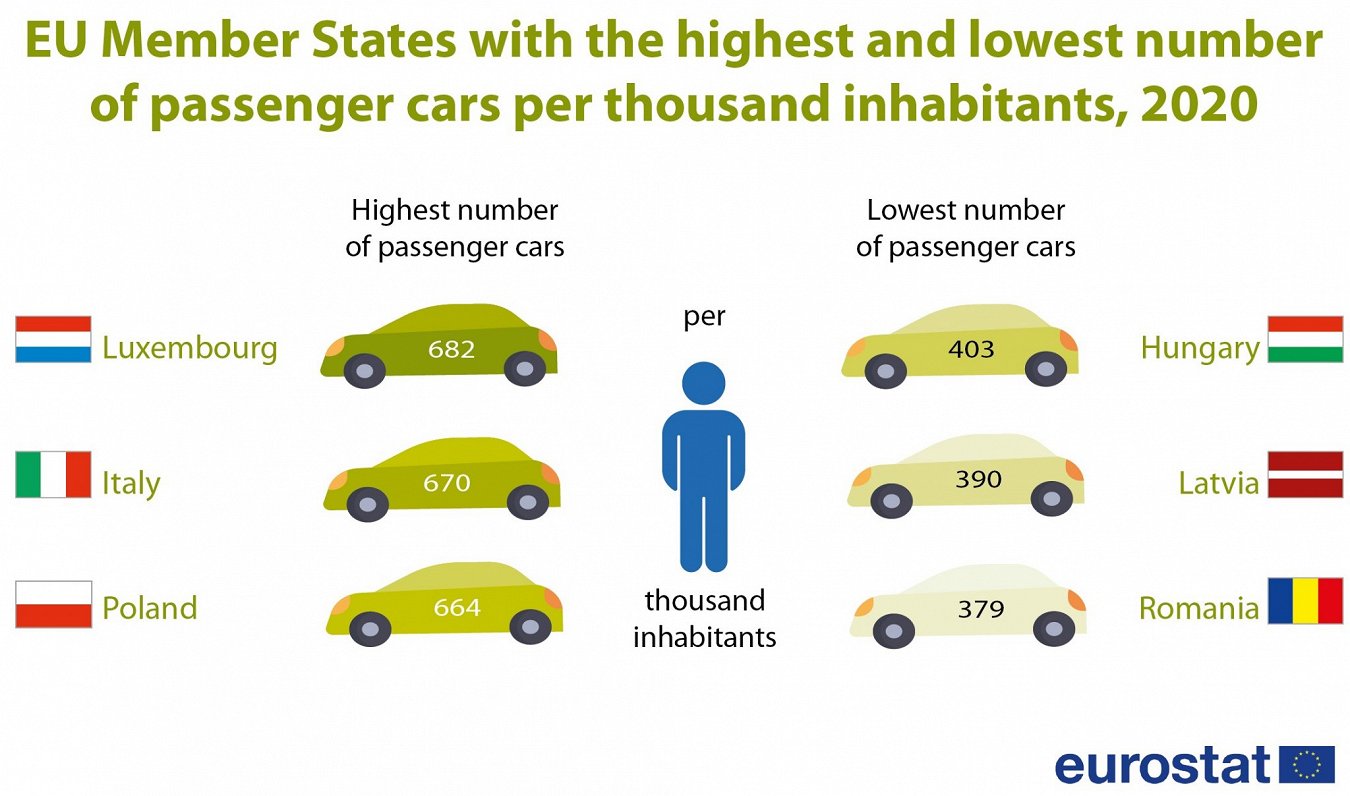According to data published by Eurostat June 30, only Romania has fewer cars per thousand of population than Latvia among EU member states.
Overall, the passenger car fleet in almost all of the EU Member States has grown over the last five years, reaching an EU total of 250 million cars. The highest number of cars per thousand inhabitants was recorded in Luxembourg, followed by Italy and Poland. Latvia was near the other end of the scale.

13,725 new cars were registered in Latvia in 2020, of which 8,363 had petrol engines, 4,870 had diesel engines and 492 had other power units (electric, LPG).
In all there were 739,124 passenger cars registered in Latvia in 2020.
Among the other data, it appears that even if we do not have that many cars, we have a liking for larger diesel engines. "Medium-sized engines dominate amongst the diesel-powered passenger cars in all Member States for which data are available. This is particularly the case for the group of countries with the highest overall share of diesel-powered passenger cars (Ireland, France, Portugal, Austria, Croatia and Spain). However, for Latvia, which has an even higher proportion of diesel-powered vehicles than the countries in the group, the share of large motor engines (> 2000 cm3) is quite significant (24.9 %)," said Eurostat.
Latvia's cars are also relatively old, with around three-quarters of vehicles more than 10 years old, but in 2020, Poland had by far the highest share of passenger cars older than 20 years, followed by Estonia and Finland.






























